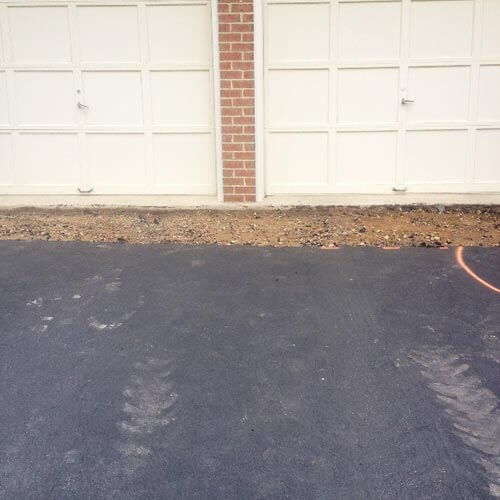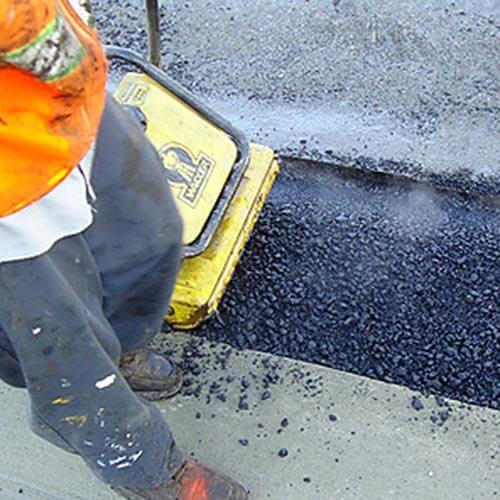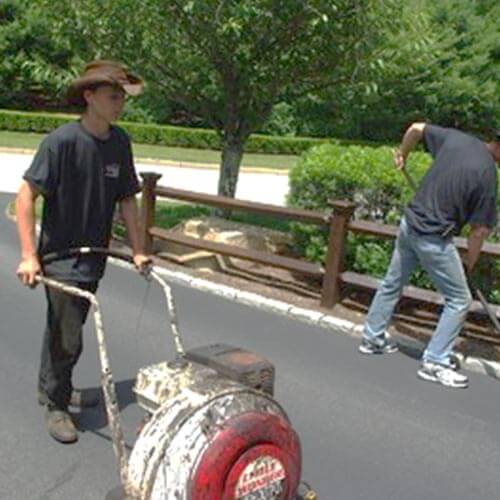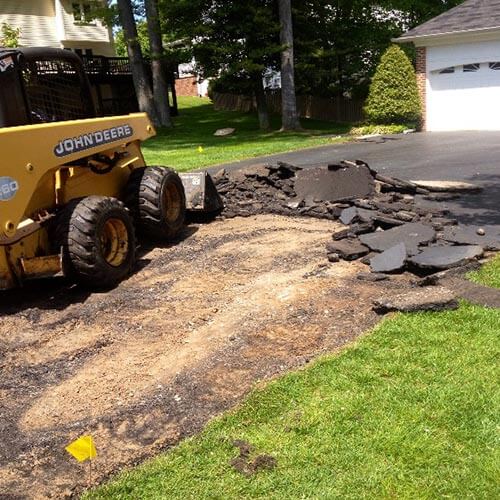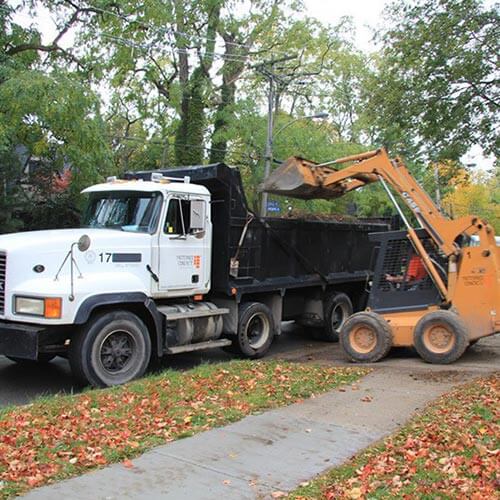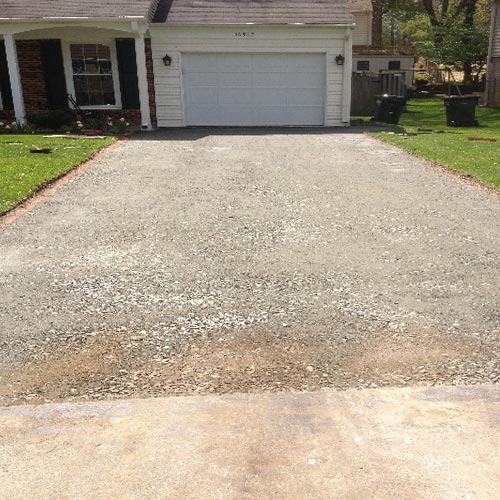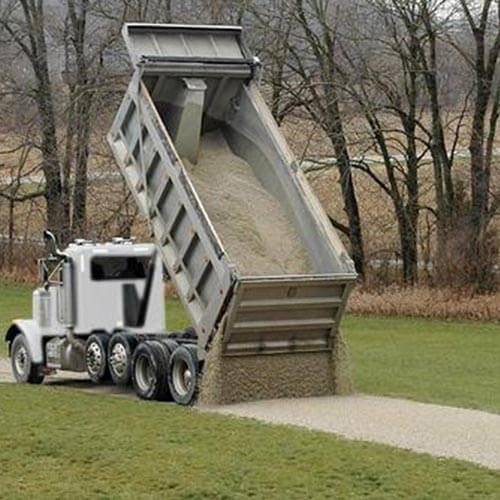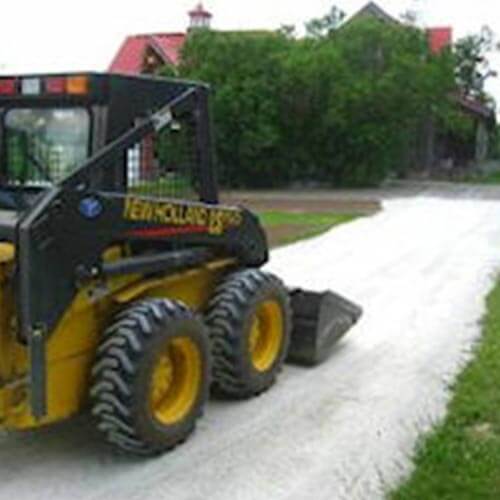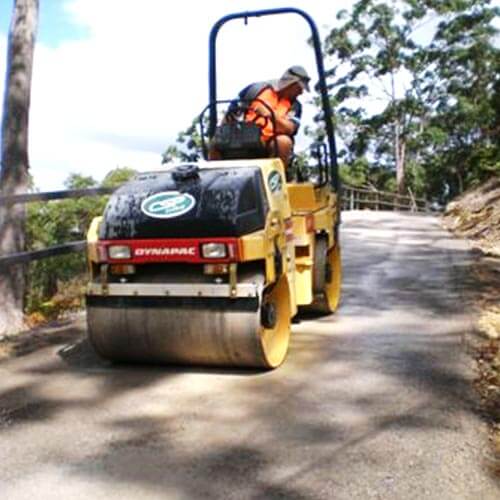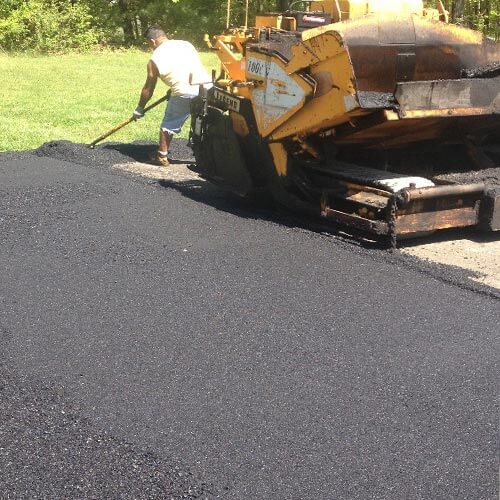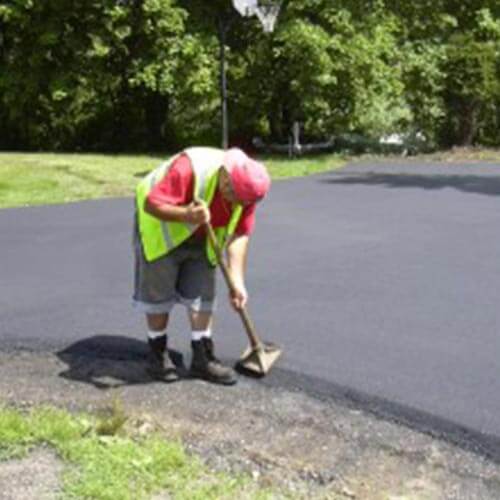What is Hot Mix Asphalt?
Hot mix asphalt also known as plant mix or blacktop, is an engineered mixture of aggregate and sand, with liquid asphalt cement, (a petroleum product). Varying sizes of aggregates are heated, then mixed, in exact proportions, with asphalt cement that has been liquefied at about 300 – 325 degrees. While the mixture is still hot, it is delivered to your jobsite and installed on top of a base or subgrade that has already been prepared.
Homeowners like hot mix asphalt for the same reasons that road builders do. Asphalt provides an all-weather, smooth, sound-absorbing driving surface that’s easy to maintain and it lasts for years.
It’s attractive slate black appearance enhances curb appeal and property value.
Professionally installed asphalt can have a service life of 20 to 30 years or more if properly maintained. The key to that long life is professional installation. At Standard Paving, every step we take in the paving process is designed to give the customer the professional product they expect, and a service life beyond their expectations. We use our own dump trucks to bring the asphalt to the project so it gets delivered on time while it’s still hot. We install the asphalt using our state-of-the-art equipment including self-propelled, self-leveling pavers to ensure consistent thickness and uniform surface. Our vibrating rollers and plate compactors provide necessary compaction, and most importantly our own full time, well trained, experienced crews.
Your asphalt project should complement your property, but it also has to take into consideration terrain, drainage, landscaping and grade. A straight line is the shortest distance between two points but sometimes a curve or two is the better solution construction wise and aesthetically. No two jobs are exactly alike. At Standard Paving, we design your asphalt surface for maximum durability, function, and appearance. We build our driveways from the ground up, because what’s underneath is just as important as what goes on top.
Asphalt Repaving:
When an asphalt or concrete surface has repairable damage like deep cracks, potholes, low spots, or unsightly stains, the fastest. most cost-effective method of repair is asphalt repaving or “recapping,” We identify, cut out and remove any structurally failing material. Cracks and potholes are filled, and low spots are leveled up. The surface is air and broom swept clean, and then we install a new layer of hot-mix asphalt. After compacting the asphalt, the end result is a beautiful, slate black, long-lasting surface that looks (and is) brand new.
Remove and Replace (R&R):
When an asphalt or concrete driveway has reached the end of its service life or is so damaged it is beyond repair, the only answer is removal and replacement. Our excavation crew will rip up and remove the old surface. A careful inspection of the subbase is made to determine if there are drainage or other issues that could affect the base. The base is graded and compacted in preparation for a new layer of asphalt. A self-leveling paver, assisted by experienced hand crews, installs a new layer of hot-mix asphalt. A commercial grade roller compacts the surface, and after a sealant is applied, you have a drive that is good for 20 to 30 years.
Get Free Estimates
Here is a brief description of the most common types of asphalt paving jobs that we do.
Paving Gravel:
Outside the urban centers of Northern Virginia, it’s not uncommon for homeowners and businesses to use gravel for their driveways and parking lots. Gravel is relatively inexpensive, but it comes with problems. During the rainy season gravel surfaces can become mud holes subject to washing out. It the summer, gravel roads become dust bowls. On the plus side, gravel makes an excellent subbase for hot-mix asphalt or tar and chip paving. Paving over gravel with asphalt eliminates the constant need to replenish gravel and repairing washouts. When we pave over gravel, we inspect the base and replenish and grade the gravel then install a layer of asphalt using a self-leveling paver and hand crews. Once installed, the asphalt is compacted with a roller creating a beautiful, smooth, slate black surface that will enhance the curb appeal and property value of your home or business.
Usually the only real difference between the various types of asphalt paving jobs is the prep work that’s required, and like the installation, it has to be done correctly. Shown below is an overview of how we typically prep and install our asphalt driveways.
Recap prep work:
R&R prep work:
Gravel prep work:
Asphalt Installation:
Want to Learn More? Call or Email Us Now!
Asphalt Paving FAQs
Q: How long should an asphalt driveway last?
Q: My asphalt pavement is developing cracks and potholes. What should I do?
Q: What maintenance is required for asphalt driveways and pavements?
Q: My asphalt pavement is looking dull and colorless. What can I do to make it look fresh again?
Q: How can I stop cracks and potholes from forming on my asphalt pavement?
Q: How often should I seal coat my asphalt pavement in Northern Virginia?
Q: Why should I choose asphalt pavements for my commercial property?
Q: Can my asphalt pavement repairs be done during the winter?
Q: Should I get my asphalt pavement repaired or a full repaving?
Our Blogs
Ultimate Guide for Long-Lasting Asphalt Paving Techniques
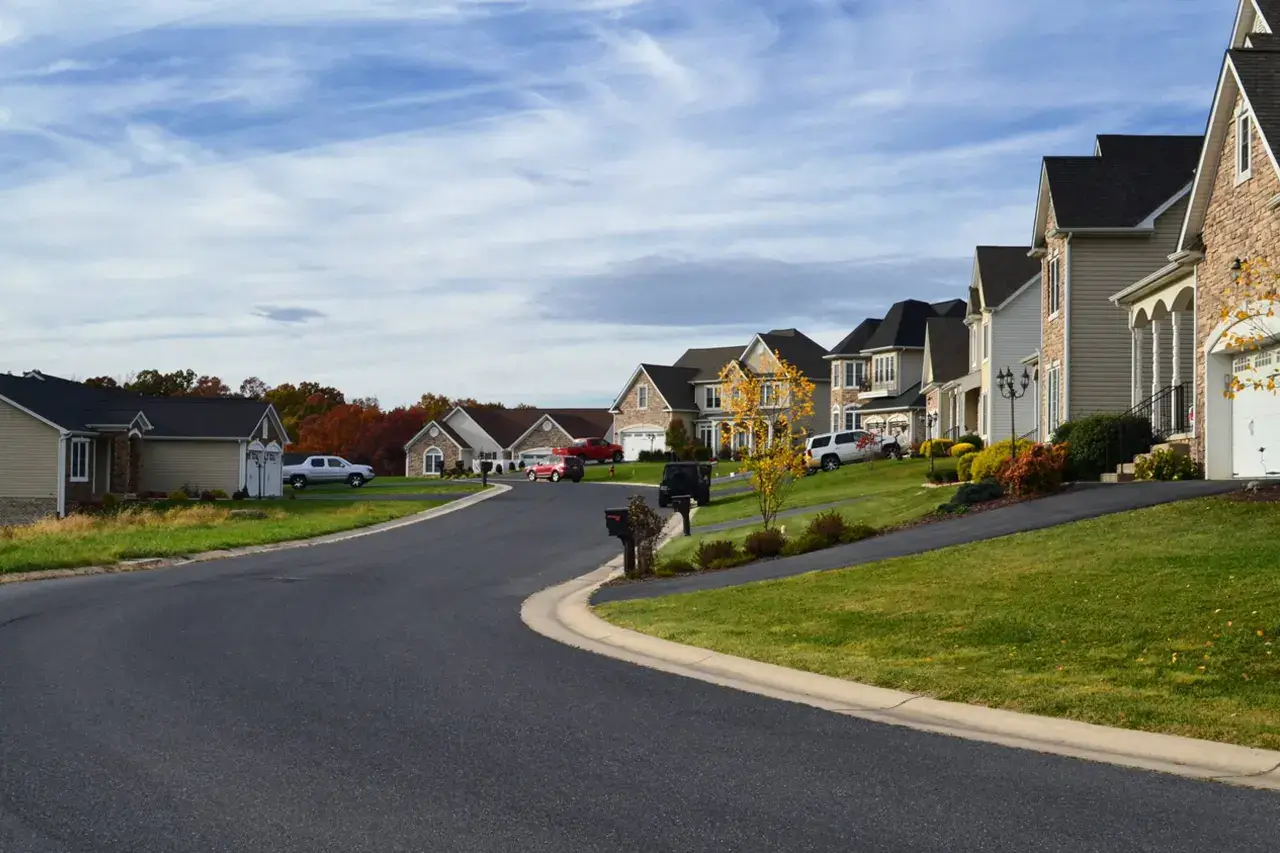
Have you ever wondered why some asphalt driveways look brand new years after they’ve been installed? Or why some paving jobs just don’t seem to hold up against the elements? […]
Your Questions about Asphalt Paving, Answered
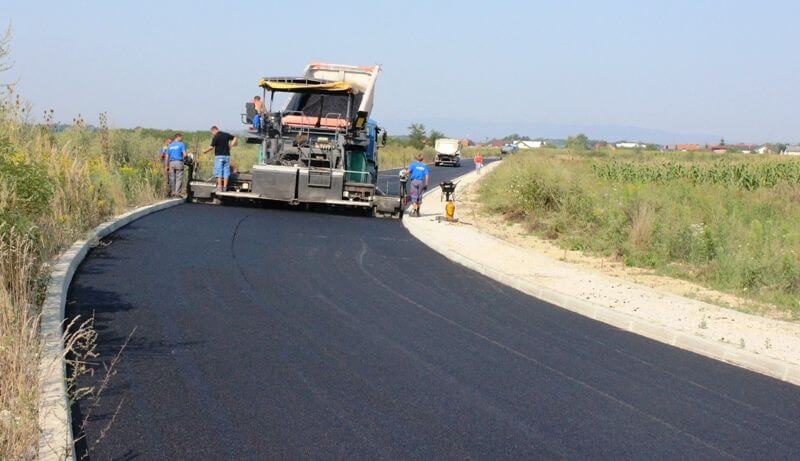
At Standard Paving, we take pride in our knowledge of asphalt pavement in VA. Whether you need help with a driveway, roadway, or parking lot, we have a professional team […]
What’s the Right Thickness for an Asphalt Driveway? Key Factors to Consider
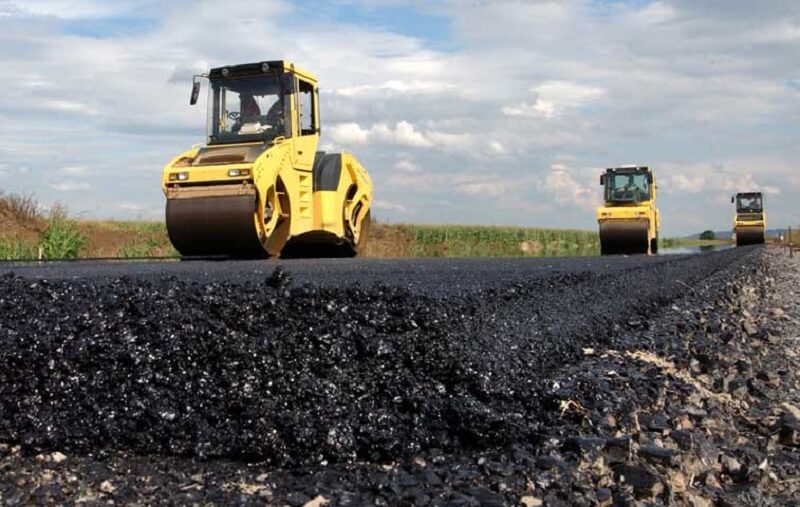
When it comes to paving your driveway, one of the most common questions is: What is the right thickness for an asphalt driveway? You might not think thickness matters much, […]
